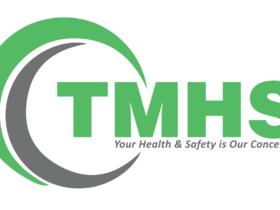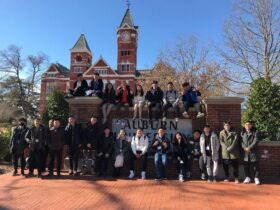Job Opportunity at IRMCT/United Nations, LEGAL OFFICER, P4
Posting Title:LEGAL OFFICER, P4
Job Code Title: LEGAL OFFICER
Department/Office: International Residual Mechanism for Criminal Tribunals
Duty Station: ARUSHA
Posting Period: 20 November 2020 – 19 December 2020
Job Opening Number: 20-Legal Affairs-RMT-144775-R-Arusha (R)
Staffing Exercise:N/A
United Nations Core Values: Integrity, Professionalism, Respect for Diversity
Org. Setting and Reporting
This position is located in the Office of the Prosecutor of the International Residual Mechanism for Criminal Tribunals, at the Arusha branch. The incumbent will work under the direct supervision of the Officer in Charge/Senior Legal Officer.
Appointment of the successful candidate to this position will be subject to budgetary approval.
Responsibilities
The incumbent will perform the following duties:
-
- Serve as lead legal officer who oversees the legal work of the OTP relating to core functions of the IRMCT and independently handle a wide range of multidisciplinary and complex legal matters.
- Supervise the preparation of, and prepare, legal documents required for the provision of assistance to national authorities.
- Provide legal advice in relation to case-related research inquiries and requests for access to materials and the OTP evidence collection
- Supervise/conduct case-related legal work, including work in relation to OTP investigations, trials, appeals and review proceedings and be responsible for the maintenance of the statistics relating to the legal work of the OTP.
- Provide legal advice on diverse substantive and procedural legal questions, including policy and diplomatic matters.
- Coordinate and direct teams of other legal officers dealing with significant issues as required, and supervise the work of junior officers generally, and on specific projects.
- Perform extensive legal research and analysis and prepare legal opinions, motions, briefs, reports and correspondence.
- Serve on committees and working groups, as required, and represent the OTP at meetings, conferences, and seminars.
- Design and review systems and procedures for the OTP Arusha Branch concerning legal issues and practices, and revise/develop policy guidelines and proposals as appropriate.
- Assist and support the work of the OTP MICT The Hague Branch as required.
- Perform other duties as directed by the Prosecutor, Officer in Charge/Senior Legal Officer or Chief of Staff.
Competencies
-
- Professionalism: Knowledge of the genocide and crimes committed in Rwanda. Knowledge of international legal procedures and instruments, including international criminal law, with a particular emphasis on the legal practice of the MICT. Sound knowledge of the functioning of criminal investigations and prosecutions at the national and international levels. Ability to apply legal expertise to analyzing a diverse range of complex issues and in developing innovative solutions. Strong analytical skills and proficiency in legal writing and expression and ability to prepare legal documents. Experience and ability to work well in a multicultural environment. Ability to work to tight deadlines and to handle multiple concurrent projects. Good computer skills and ability to use relevant software applications and online legal-research tools. Shows pride in work and in achievements. Is conscientious and efficient in meeting commitments, observing deadlines and achieving results. Is motivated by professional rather than personal concerns. Shows persistence when faced with difficult problems or challenges. Remains calm in stressful situations.
- Communication – Speaks and writes clearly and effectively. Listens to others, correctly interprets messages from others and responds appropriately. Asks questions to clarify, and exhibits interest in having two way communication. Tailors language, tone, style and format to match the audience. Demonstrates openness in sharing information and keeping people informed.
- Teamwork – Works collaboratively with colleagues to achieve organisational goals. Solicits input by genuinely valuing others’ ideas and expertise; is willing to learn from others. Places team agenda before personal agenda. Supports and acts in accordance with final group decision, even when such decisions may not entirely reflect own position. Shares credit for team accomplishments and accepts joint responsibility for team shortcomings.
- Leadership – Serves as a role model that other people want to follow. Empowers others to translate vision into results. Is proactive in developing strategies to accomplish objectives. Establishes and maintains relationships with a broad range of people to understand needs and gain support. Anticipates and resolves conflicts by pursuing mutually agreeable solutions. Drives for change and improvement; does not accept the status quo. Shows the courage to take unpopular stands.
Provides leadership and takes responsibility for incorporating gender perspectives and ensuring the equal participation of women and men in all areas of work.
- Judgement/Decision-making – Identifies the key issues in a complex situation, and comes to the heart of the problem quickly. Gathers relevant information before making a decision. Considers positive and negative impacts of decisions prior to making them. Takes decisions with an eye to the impact on others and on the Organisation. Proposes a course of action or makes a recommendation based on all available information. Checks assumptions against facts. Determines that the actions proposed will satisfy the expressed and underlying needs for the decision. Makes tough decisions when necessary.
Education
Advanced university degree (Master’s degree or equivalent) in Law. A first level university degree in combination with two additional years of qualifying experience may be accepted in lieu of an advanced university degree.
Work Experience
Minimum of 7 years of progressively responsible professional legal experience, particularly in conducting complex criminal prosecutions.
Relevant experience at the ICTY and/or ICTR and a good understanding of the Rwandan genocide are highly desirable.
Languages
English and French are the working languages of the Mechanism. For the post advertised, fluency in oral and written English is required. Working knowledge of French is desirable.
Assessment
There may be a technical test followed by a competency-based interview
Special Notice
The United Nations Secretariat is committed to achieving 50/50 gender balance in its staff. Female candidates are strongly encouraged to apply for this position.
The appointment is limited to the International Residual Mechanism for Criminal Tribunals. Appointment of the successful candidate to this position will be subject to budgetary approval. Appointment of the successful candidate on this position will be limited to the initial funding of the post. Extension of the appointment is subject to the extension of the mandate and/or the availability of funds. As the international tribunals are not integrated in the Secretariat, UN Staff Members serve on assignment or secondment from their parent department/office if selected. Appointments of staff members in the United Nations are subject to the authority of the Secretary-General. Staff Members are expected to move periodically to new functions in accordance with established rules and procedures, and may in this context be reassigned by the Secretary-General throughout the Organization based on the changing needs and mandates.
NOTE FOR PREVIOUSLY ROSTERED CANDIDATES
Roster candidates must express their interest and availability for published job openings by submitting an updated PHP and cover letter.
United Nations Considerations
According to article 101, paragraph 3, of the Charter of the United Nations, the paramount consideration in the employment of the staff is the necessity of securing the highest standards of efficiency, competence, and integrity. Candidates will not be considered for employment with the United Nations if they have committed violations of international human rights law, violations of international humanitarian law, sexual exploitation, sexual abuse, or sexual harassment, or if there are reasonable grounds to believe that they have been involved in the commission of any of these acts. The term “sexual exploitation” means any actual or attempted abuse of a position of vulnerability, differential power, or trust, for sexual purposes, including, but not limited to, profiting monetarily, socially or politically from the sexual exploitation of another. The term “sexual abuse” means the actual or threatened physical intrusion of a sexual nature, whether by force or under unequal or coercive conditions. The term “sexual harassment” means any unwelcome conduct of a sexual nature that might reasonably be expected or be perceived to cause offence or humiliation, when such conduct interferes with work, is made a condition of employment or creates an intimidating, hostile or offensive work environment, and when the gravity of the conduct warrants the termination of the perpetrator’s working relationship. Candidates who have committed crimes other than minor traffic offences may not be considered for employment.
Due regard will be paid to the importance of recruiting the staff on as wide a geographical basis as possible. The United Nations places no restrictions on the eligibility of men and women to participate in any capacity and under conditions of equality in its principal and subsidiary organs. The United Nations Secretariat is a non-smoking environment.
The paramount consideration in the appointment, transfer, or promotion of staff shall be the necessity of securing the highest standards of efficiency, competence, and integrity. By accepting an offer of appointment, United Nations staff members are subject to the authority of the Secretary-General and assignment by him or her to any activities or offices of the United Nations in accordance with staff regulation 1.2 (c). In this context, all internationally recruited staff members shall be required to move periodically to discharge new functions within or across duty stations under conditions established by the Secretary-General.
Applicants are urged to follow carefully all instructions available in the online recruitment platform, inspira. For more detailed guidance, applicants may refer to the Manual for the Applicant, which can be accessed by clicking on “Manuals” hyper-link on the upper right side of the inspira account-holder homepage.
The evaluation of applicants will be conducted on the basis of the information submitted in the application according to the evaluation criteria of the job opening and the applicable internal legislations of the United Nations including the Charter of the United Nations, resolutions of the General Assembly, the Staff Regulations and Rules, administrative issuances and guidelines. Applicants must provide complete and accurate information pertaining to their personal profile and qualifications according to the instructions provided in inspira to be considered for the current job opening. No amendment, addition, deletion, revision or modification shall be made to applications that have been submitted. Candidates under serious consideration for selection will be subject to reference checks to verify the information provided in the application.
Job openings advertised on the Careers Portal will be removed at 11:59 p.m. (New York time) on the deadline date.
No Fee
THE UNITED NATIONS DOES NOT CHARGE A FEE AT ANY STAGE OF THE RECRUITMENT PROCESS (APPLICATION, INTERVIEW MEETING, PROCESSING, OR TRAINING). THE UNITED NATIONS DOES NOT CONCERN ITSELF WITH INFORMATION ON APPLICANTS’ BANK ACCOUNTS.
The deadline for submitting the application is 19 December 2020
Job Opportunity at IRMCT/UN, Legal Officer P3
LEGAL OFFICER, P3
Org. Setting and Reporting
This position is located in the Office of the Prosecutor of the International Residual Mechanism for Criminal Tribunals, at the Arusha branch. The incumbent will work under the direct supervision of the Officer in Charge/Senior Legal Officer.
Appointment of the successful candidate to this position will be subject to budgetary approval.
Responsibilities
The incumbent will perform the following duties:
-
- Handles a range of issues related to criminal law in consultation with the Officer in Charge and/or the Legal Officer.
- Conducts extensive legal research and analysis and prepares legal opinions and briefs on a wide range of international criminal law issues as well as studies, reports and correspondence.
- Reviews and analyzes legal documents or other material.
- Drafts submissions, reports, analysis and correspondence.
- Facilitates case-related inquiries for visiting prosecutors and investigators and prepares or assists in the preparation of responses to requests for assistance from national and other requesting authorities. Drafts correspondence on matters related to enquiries from the general public, academic institutions, researchers and other sources.
- Supervises searches for particular material and reviews the identified material for the purposes of disclosure to the defence or provision to requesting authorities.
- Prepares advice to archivists on documents, the OTP evidence collection and case-related research enquiries.
- Assists senior colleagues in servicing diplomatic conferences, commissions, committees, task forces, expert groups and other bodies, including preparation of background materials, summaries of issues and views of delegations, meeting reports, etc.
- Attends court hearings and advocates before the IRMCT as required.
- Assists and supports the work of The Hague Branch as required.
- Performs other functions as directed by the Officer in Charge and/or Legal Officer.
Competencies
- Professionalism: Knowledge of the genocide and crimes committed in Rwanda. Knowledge of, and ability to apply, legal principles, concepts and procedures for review, examination, and processing of a range of legal documents. Sound knowledge of substantive and procedural criminal law or international criminal law. Knowledge of various legal research sources, including electronic/online research tools, and ability to conduct research and analyze information on a wide range of legal issues. Ability to interpret and apply legal instruments, develop and present results, recommendations, and opinions clearly and concisely. Ability to draft legal documents and work under pressure. Discretion and ability to apply good legal judgment in the context of assignments given. Experience and ability to work well in a multicultural environment. Shows pride in work and in achievements. Is conscientious and efficient in meeting commitments, observing deadlines and achieving results. Is motivated by professional rather than personal concerns. Shows persistence when faced with difficult problems or challenges. Remains calm in stressful situations. Commitment to implementing the goal of gender equality by ensuring the equal participation and full involvement of women and men in all aspects of work.
- Communication – Speaks and writes clearly and effectively. Listens to others, correctly interprets messages from others and responds appropriately. Asks questions to clarify, and exhibits interest in having two way communication. Tailors language, tone, style and format to match the audience. Demonstrates openness in sharing information and keeping people informed.
- Teamwork – Works collaboratively with colleagues to achieve organisational goals. Solicits input by genuinely valuing others’ ideas and expertise; is willing to learn from others. Places team agenda before personal agenda. Supports and acts in accordance with final group decision, even when such decisions may not entirely reflect own position. Shares credit for team accomplishments and accepts joint responsibility for team shortcomings.
Education
Advanced university degree (Master’s degree or equivalent) in Law. A first level university degree in combination with two additional years of qualifying experience may be accepted in lieu of an advanced university degree.
Work Experience
Minimum of 5 years of progressively responsible professional legal experience, particularly in conducting complex criminal prosecutions.
Relevant experience at the ICTY and/or ICTR and a good understanding of the Rwandan genocide are highly desirable.
Languages
English and French are the working languages of the Mechanism. For the post advertised, fluency in oral and written English is required. Working knowledge of French is desirable.
Assessment
There may be a technical test followed by a competency-based interview.
Special Notice
The United Nations Secretariat is committed to achieving 50/50 gender balance in its staff. Female candidates are strongly encouraged to apply for this position.
- The appointment is limited to the International Residual Mechanism for Criminal Tribunals. Appointment of the successful candidate to this position will be subject to budgetary approval. Appointment of the successful candidate on this position will be limited to the initial funding of the post. Extension of the appointment is subject to the extension of the mandate and/or the availability of funds. As the international tribunals are not integrated in the Secretariat, UN Staff Members serve on assignment or secondment from their parent department/office if selected. Appointments of staff members in the United Nations are subject to the authority of the Secretary-General. Staff Members are expected to move periodically to new functions in accordance with established rules and procedures, and may in this context be reassigned by the Secretary-General throughout the Organization based on the changing needs and mandates.
NOTE FOR PREVIOUSLY ROSTERED CANDIDATES
Roster candidates must express their interest and availability for published job openings by submitting an updated PHP and cover letter.
United Nations Considerations
According to article 101, paragraph 3, of the Charter of the United Nations, the paramount consideration in the employment of the staff is the necessity of securing the highest standards of efficiency, competence, and integrity. Candidates will not be considered for employment with the United Nations if they have committed violations of international human rights law, violations of international humanitarian law, sexual exploitation, sexual abuse, or sexual harassment, or if there are reasonable grounds to believe that they have been involved in the commission of any of these acts. The term “sexual exploitation” means any actual or attempted abuse of a position of vulnerability, differential power, or trust, for sexual purposes, including, but not limited to, profiting monetarily, socially or politically from the sexual exploitation of another. The term “sexual abuse” means the actual or threatened physical intrusion of a sexual nature, whether by force or under unequal or coercive conditions. The term “sexual harassment” means any unwelcome conduct of a sexual nature that might reasonably be expected or be perceived to cause offence or humiliation, when such conduct interferes with work, is made a condition of employment or creates an intimidating, hostile or offensive work environment, and when the gravity of the conduct warrants the termination of the perpetrator’s working relationship. Candidates who have committed crimes other than minor traffic offences may not be considered for employment.
Due regard will be paid to the importance of recruiting the staff on as wide a geographical basis as possible. The United Nations places no restrictions on the eligibility of men and women to participate in any capacity and under conditions of equality in its principal and subsidiary organs. The United Nations Secretariat is a non-smoking environment.
The paramount consideration in the appointment, transfer, or promotion of staff shall be the necessity of securing the highest standards of efficiency, competence, and integrity. By accepting an offer of appointment, United Nations staff members are subject to the authority of the Secretary-General and assignment by him or her to any activities or offices of the United Nations in accordance with staff regulation 1.2 (c). In this context, all internationally recruited staff members shall be required to move periodically to discharge new functions within or across duty stations under conditions established by the Secretary-General.
Applicants are urged to follow carefully all instructions available in the online recruitment platform, inspira. For more detailed guidance, applicants may refer to the Manual for the Applicant, which can be accessed by clicking on “Manuals” hyper-link on the upper right side of the inspira account-holder homepage.
The evaluation of applicants will be conducted on the basis of the information submitted in the application according to the evaluation criteria of the job opening and the applicable internal legislations of the United Nations including the Charter of the United Nations, resolutions of the General Assembly, the Staff Regulations and Rules, administrative issuances and guidelines. Applicants must provide complete and accurate information pertaining to their personal profile and qualifications according to the instructions provided in inspira to be considered for the current job opening. No amendment, addition, deletion, revision or modification shall be made to applications that have been submitted. Candidates under serious consideration for selection will be subject to reference checks to verify the information provided in the application.
Job openings advertised on the Careers Portal will be removed at 11:59 p.m. (New York time) on the deadline date.
No Fee
THE UNITED NATIONS DOES NOT CHARGE A FEE AT ANY STAGE OF THE RECRUITMENT PROCESS (APPLICATION, INTERVIEW MEETING, PROCESSING, OR TRAINING). THE UNITED NATIONS DOES NOT CONCERN ITSELF WITH INFORMATION ON APPLICANTS’ BANK ACCOUNTS.
The deadline for submitting the application is 18 December 2020
Job Opportunity at IRMCT/United Nations, Investigator P3
Posting Title: INVESTIGATOR, P3
Job Code Title: INVESTIGATOR
Department/Office: International Residual Mechanism for Criminal Tribunals
Duty Station: ARUSHA
Posting Period: 20 November 2020 – 19 December 2020
Job Opening Number: 20-Investigation-RMT-144853-R-Arusha (R)
Staffing Exercise: N/A
United Nations Core Values: Integrity, Professionalism, Respect for Diversity
Org. Setting and Reporting
The post is located in the Office of the Prosecutor (OTP) of the International Residual Mechanism for Criminal Tribunals (IRMCT), Arusha Branch. The incumbent will work under the supervision of the Officer in Charge/ Senior Legal Officer and/or Legal Officers. *Appointment of the successful candidate to this position will be subject to budgetary approval.
Responsibilities
-
- Conducts investigations as required in all cases falling within core and other functions of the Mechanism’s mandate. Facilitates case-related inquiries for visiting prosecutors and investigators and prepares or assists in the preparation of responses to requests for assistance from national and other requesting authorities.
- Supervises searches for particular material and reviews the identified material for the purposes of disclosure to the defence or provision to requesting authorities.
-
- Prepares advice to archivists on documents, the OTP evidence collection and case-related research enquiries.
- Engages with witnesses in relation to core functions of the OTP.
- Is responsible for the professional planning and conduct of investigations assigned to him or her.
- Provides investigative support (including giving evidence as required) to trials and appeals and any other case-related matters arising before the Mechanism, Arusha Branch, such as applications for review and contempt of court.
- Undertakes travel to support the work outlined above, which may include witness interviews, recording statements from witnesses, opening new lines of investigation, arresting fugitives and investigating new evidence submitted or identifying rebuttal evidence as part of appeal or review processes.
- Reviews intelligence and analytical work product to determine further investigative actions.
- Records victims and witness statements and collates evidence or other materials obtained during investigations, ensures the proper chain of custody of evidence or other materials and takes responsibility for entering statements, evidence or other materials in the OTP’s evidence collection as well as generally ensuring the safe-keeping of all evidence, statements and other relevant materials.
- Reviews incoming material for disclosure.
- Maintains cordial and cooperative relations with national, regional and international investigative/prosecuting authorities and assists their relevant officers, pursuant to official requests by them, in their search for relevant materials for national prosecution(s).
- Proposes and/or implements systems and procedures to ensure that investigations are conducted professionally, efficiently and effectively.
- Performs other functions as directed by the Prosecutor, Senior Legal Officer, Head of Tracking and/or senior lawyer in charge of the case.
- Assists and supports the work of the OTP as required.
Competencies
- Professionalism: Knowledge of techniques for contacting, recruiting and managing sources. Knowledge of criminal investigation techniques, and particularly use of analysis in complex investigations. Knowledge of procedures and experience in preparing witnesses and evidence for judicial proceedings, particularly in the context of the former ICTR. Ability to adapt to changing circumstances and conditions during the course of an investigation and ability to modify procedures and methodologies accordingly. Ability to think clearly and logically and analyze complex and obscure data from a myriad of sources. Sound knowledge of and practical experience in the use of internal guidelines on the management, and protection of confidential sources. Good computer skills and ability to use software applications relevant to criminal investigations. Shows pride in work and in achievements. Demonstrates professional competence and mastery of subject matter. Is conscientious and efficient in meeting commitments, observing deadlines and achieving results. Is motivated by professional rather than personal concerns. Shows persistence when faced with difficult problems or challenges. Remains calm in stressful situations. Commitment to implementing the goal of gender equality by ensuring the equal participation and full involvement of women and men in all aspects of work.
- Teamwork – Works collaboratively with colleagues to achieve organisational goals. Solicits input by genuinely valuing others’ ideas and expertise; is willing to learn from others. Places team agenda before personal agenda. Supports and acts in accordance with final group decision, even when such decisions may not entirely reflect own position. Shares credit for team accomplishments and accepts joint responsibility for team shortcomings.
- Accountability – Takes ownership of all responsibilities and honours commitments. Delivers outputs for which one has responsibility within prescribed time, cost and quality standards. Operates in compliance with organisational regulations and rules. Supports subordinates, provides oversight and takes responsibility for delegated assignments. Takes personal responsibility for his/her own shortcomings and those of the work unit, where applicable.
Education
Advanced university degree (Master’s degree or equivalent) in Criminology, Criminal Investigations, Criminal Justice or related field. A first-level university degree or equivalent training/diploma in criminal investigations techniques from a recognized public police academy combined with (2) two additional years of qualifying experience in criminal investigation techniques may be accepted in lieu of the advanced university degree.
Work Experience
At least five (5) years of progressively responsible experience in criminal investigations or law enforcement, including substantial experience at the international level.
Substantive participation in complex, long-term criminal investigations, especially of violent crimes is required.
Relevant experience at the ICTY and/or ICTR and a good understanding of the Rwandan genocide are highly desirable.
Languages
Fluency in one of the working languages of the Mechanism, English or French, (both oral and written) is required; knowledge of the other would be an asset.
Assessment
There may be a technical test followed by a competency-based interview.
Special Notice
The United Nations Secretariat is committed to achieving 50/50 gender balance in its staff. Female candidates are strongly encouraged to apply for this position.
The appointment is limited to the International Residual Mechanism for Criminal Tribunals. *Appointment of the successful candidate to this position will be subject to budgetary approval. Appointment of the successful candidate on this position will be limited to the initial funding of the post. Extension of the appointment is subject to the extension of the mandate and/or the availability of funds. As the international tribunals are not integrated in the Secretariat, UN Staff Members serve on assignment or secondment from their parent department/office if selected. Appointments of staff members in the United Nations are subject to the authority of the Secretary-General. Staff Members are expected to move periodically to new functions in accordance with established rules and procedures, and may in this context be reassigned by the Secretary-General throughout the Organization based on the changing needs and mandates.
NOTE FOR PREVIOUSLY ROSTERED CANDIDATES
Roster candidates must express their interest and availability for published job openings by submitting an updated PHP and cover letter.
United Nations Considerations
According to article 101, paragraph 3, of the Charter of the United Nations, the paramount consideration in the employment of the staff is the necessity of securing the highest standards of efficiency, competence, and integrity. Candidates will not be considered for employment with the United Nations if they have committed violations of international human rights law, violations of international humanitarian law, sexual exploitation, sexual abuse, or sexual harassment, or if there are reasonable grounds to believe that they have been involved in the commission of any of these acts. The term “sexual exploitation” means any actual or attempted abuse of a position of vulnerability, differential power, or trust, for sexual purposes, including, but not limited to, profiting monetarily, socially or politically from the sexual exploitation of another. The term “sexual abuse” means the actual or threatened physical intrusion of a sexual nature, whether by force or under unequal or coercive conditions. The term “sexual harassment” means any unwelcome conduct of a sexual nature that might reasonably be expected or be perceived to cause offence or humiliation, when such conduct interferes with work, is made a condition of employment or creates an intimidating, hostile or offensive work environment, and when the gravity of the conduct warrants the termination of the perpetrator’s working relationship. Candidates who have committed crimes other than minor traffic offences may not be considered for employment.
Due regard will be paid to the importance of recruiting the staff on as wide a geographical basis as possible. The United Nations places no restrictions on the eligibility of men and women to participate in any capacity and under conditions of equality in its principal and subsidiary organs. The United Nations Secretariat is a non-smoking environment.
The paramount consideration in the appointment, transfer, or promotion of staff shall be the necessity of securing the highest standards of efficiency, competence, and integrity. By accepting an offer of appointment, United Nations staff members are subject to the authority of the Secretary-General and assignment by him or her to any activities or offices of the United Nations in accordance with staff regulation 1.2 (c). In this context, all internationally recruited staff members shall be required to move periodically to discharge new functions within or across duty stations under conditions established by the Secretary-General.
Applicants are urged to follow carefully all instructions available in the online recruitment platform, inspira. For more detailed guidance, applicants may refer to the Manual for the Applicant, which can be accessed by clicking on “Manuals” hyper-link on the upper right side of the inspira account-holder homepage.
The evaluation of applicants will be conducted on the basis of the information submitted in the application according to the evaluation criteria of the job opening and the applicable internal legislations of the United Nations including the Charter of the United Nations, resolutions of the General Assembly, the Staff Regulations and Rules, administrative issuances and guidelines. Applicants must provide complete and accurate information pertaining to their personal profile and qualifications according to the instructions provided in inspira to be considered for the current job opening. No amendment, addition, deletion, revision or modification shall be made to applications that have been submitted. Candidates under serious consideration for selection will be subject to reference checks to verify the information provided in the application.
Job openings advertised on the Careers Portal will be removed at 11:59 p.m. (New York time) on the deadline date.
No Fee
THE UNITED NATIONS DOES NOT CHARGE A FEE AT ANY STAGE OF THE RECRUITMENT PROCESS (APPLICATION, INTERVIEW MEETING, PROCESSING, OR TRAINING). THE UNITED NATIONS DOES NOT CONCERN ITSELF WITH INFORMATION ON APPLICANTS’ BANK ACCOUNTS.
The deadline for submitting the application is 19 December 2020
Job Opportunity at UN/ IRMCT, Trial Attorney, P4
Posting Title: Trial Attorney, P4
Job Code Title: LEGAL OFFICER
Department/ Office: International Residual Mechanism for Criminal Tribunals
Duty Station: ARUSHA
Posting Period: 24 November 2020-23 December 2020
Job Opening number:20-LEG-RMT-144730-R-ARUSHA (R)
Staffing Exercise ID:N/A
United Nations Core Values: Integrity, Professionalism, Respect for Diversity
Org. Setting and Reporting
This position is located in the Office of the Prosecutor of the International Residual Mechanism for Criminal Tribunals, at the Arusha branch. The incumbent will work under the direct supervision of the Senior Trial Attorney.
*Appointment of the successful candidate to this position will be subject to budgetary approval.
Responsibilities
A: Under the supervision and direction of the Senior Trial Attorney, the Trial Attorney gives legal direction and investigative advice to the trial teams by:
-
- Assisting the Senior Trial Attorney in fulfilling his or her supervisory functions, and providing daily direction and legal advice to investigators and trial teams;
- Ensuring that the evidence collected addresses the charging theories, proves the elements of the offences charged, and meets other legal requirements, such as admissibility and reliability;
- Drafting legal documents as necessary for the remaining investigative tasks;
- Undertaking field missions and interviews of witnesses, suspects and accused.
B: Under the supervision and direction of the Senior Trial Attorney, the Trial Attorney represents the Prosecutor before the Judges and Chambers by:
- During the pre-trial and trial phases of the case, acting as co-counsel in proceedings before a Judge or Trial Chamber, as assigned;
- Preparing written pleadings, presenting oral arguments and examining witnesses in court.
C: The Trial Attorney will have other functions, namely:
- Participating in the Office of the Prosecutor (OTP) internal case reviews as assigned by the Prosecutor or Chief of Staff;
- Providing legal and policy advice concerning particular investigations/prosecutions to the Prosecutor, Chief of Staff or Senior Trial Attorney;
- Participating in drafting and revisions of OTP legal guidelines as assigned;
- Participating in regular briefing and planning conferences with other members of the OTP;
- Assisting the Senior Trial Attorney in daily management of trial teams;
- Undertaking such special assignments as may be required.
Competencies
- Professionalism: Knowledge of the genocide and crimes committed in Rwanda. Demonstrated experience carrying out a complex criminal investigation and utilizing criminal investigation techniques, and particularly use of analysis in complex investigations. Demonstrated experience conducting pre-trial and/or trial proceedings in complex criminal cases. In-depth theoretical knowledge, including knowledge of criminal law (both substantive and procedural), and extensive broad-based experience in applying legal expertise to analysing a diverse range of highly complex and novel legal issues and problems and in developing innovative and creative solutions, particularly in complex criminal cases. Superior skills in legal writing and expression and ability to prepare legal briefs, indictments, opinions, or legal submissions/motions and a variety of legal instruments and related documents for submission to senior officials or to the Chambers. Highly developed negotiating skills and ability to persuade and influence others to reach agreement. Demonstrated planning, management and organisational skills and ability to coordinate the work of teams and individuals, ensuring the quality and timeliness of outputs and good understanding of the dynamics of working in an international environment. Ability to defend difficult issues and positions before senior officials and to prosecute high profile indictees. Demonstrates professional competence and mastery of subject matter. Ability to adapt to changing circumstances and conditions during the course of the pre-trial proceedings and ability to modify procedures and methodologies accordingly. Ability to think clearly and logically and analyse complex and obscure data from a myriad of sources. Good computer skills and ability to use software applications relevant to criminal investigations and prosecutions. Shows pride in work and in achievements. Is conscientious and efficient in meeting commitments, observing deadlines and achieving results. Is motivated by professional rather than personal concerns. Shows persistence when faced with difficult problems or challenges. Remains calm in stressful situations.
- Communication – Speaks and writes clearly and effectively. Listens to others, correctly interprets messages from others and responds appropriately. Asks questions to clarify, and exhibits interest in having two way communication. Tailors language, tone, style and format to match the audience. Demonstrates openness in sharing information and keeping people informed.
- Teamwork – Works collaboratively with colleagues to achieve organisational goals. Solicits input by genuinely valuing others’ ideas and expertise; is willing to learn from others. Places team agenda before personal agenda. Supports and acts in accordance with final group decision, even when such decisions may not entirely reflect own position. Shares credit for team accomplishments and accepts joint responsibility for team shortcomings.
- Leadership – Serves as a role model that other people want to follow. Empowers others to translate vision into results. Is proactive in developing strategies to accomplish objectives. Establishes and maintains relationships with a broad range of people to understand needs and gain support. Anticipates and resolves conflicts by pursuing mutually agreeable solutions. Drives for change and improvement; does not accept the status quo. Shows the courage to take unpopular stands.
Provides leadership and takes responsibility for incorporating gender perspectives and ensuring the equal participation of women and men in all areas of work.
- Judgement/Decision-making – Identifies the key issues in a complex situation, and comes to the heart of the problem quickly. Gathers relevant information before making a decision. Considers positive and negative impacts of decisions prior to making them. Takes decisions with an eye to the impact on others and on the Organisation. Proposes a course of action or makes a recommendation based on all available information. Checks assumptions against facts. Determines that the actions proposed will satisfy the expressed and underlying needs for the decision. Makes tough decisions when necessary.
Education
Advanced university degree (Master’s degree or equivalent) in Law. A first level university degree in combination with two additional years of qualifying experience may be accepted in lieu of an advanced university degree.
Work Experience
Minimum of 7 years of progressively responsible professional legal experience, particularly in conducting complex criminal prosecutions.
Relevant experience at the ICTY and/or ICTR and a good understanding of the Rwandan genocide are highly desirable.
Languages
English and French are the working languages of the Mechanism. For the post advertised, fluency in oral and written English is required. Working knowledge of French is desirable.
Assessment
There may be a technical test followed by a competency-based interview.
Special Notice
The United Nations Secretariat is committed to achieving 50/50 gender balance in its staff. Female candidates are strongly encouraged to apply for this position.
The appointment is limited to the International Residual Mechanism for Criminal Tribunals. *Appointment of the successful candidate to this position will be subject to budgetary approval. Appointment of the successful candidate on this position will be limited to the initial funding of the post. Extension of the appointment is subject to the extension of the mandate and/or the availability of funds. As the international tribunals are not integrated in the Secretariat, UN Staff Members serve on assignment or secondment from their parent department/office if selected. Appointments of staff members in the United Nations are subject to the authority of the Secretary-General. Staff Members are expected to move periodically to new functions in accordance with established rules and procedures, and may in this context be reassigned by the Secretary-General throughout the Organization based on the changing needs and mandates.
NOTE FOR PREVIOUSLY ROSTERED CANDIDATES
Roster candidates must express their interest and availability for published job openings by submitting an updated PHP and cover letter.
United Nations Considerations
According to article 101, paragraph 3, of the Charter of the United Nations, the paramount consideration in the employment of the staff is the necessity of securing the highest standards of efficiency, competence, and integrity. Candidates will not be considered for employment with the United Nations if they have committed violations of international human rights law, violations of international humanitarian law, sexual exploitation, sexual abuse, or sexual harassment, or if there are reasonable grounds to believe that they have been involved in the commission of any of these acts. The term “sexual exploitation” means any actual or attempted abuse of a position of vulnerability, differential power, or trust, for sexual purposes, including, but not limited to, profiting monetarily, socially or politically from the sexual exploitation of another. The term “sexual abuse” means the actual or threatened physical intrusion of a sexual nature, whether by force or under unequal or coercive conditions. The term “sexual harassment” means any unwelcome conduct of a sexual nature that might reasonably be expected or be perceived to cause offence or humiliation, when such conduct interferes with work, is made a condition of employment or creates an intimidating, hostile or offensive work environment, and when the gravity of the conduct warrants the termination of the perpetrator’s working relationship. Candidates who have committed crimes other than minor traffic offences may not be considered for employment.
Due regard will be paid to the importance of recruiting the staff on as wide a geographical basis as possible. The United Nations places no restrictions on the eligibility of men and women to participate in any capacity and under conditions of equality in its principal and subsidiary organs. The United Nations Secretariat is a non-smoking environment.
The paramount consideration in the appointment, transfer, or promotion of staff shall be the necessity of securing the highest standards of efficiency, competence, and integrity. By accepting an offer of appointment, United Nations staff members are subject to the authority of the Secretary-General and assignment by him or her to any activities or offices of the United Nations in accordance with staff regulation 1.2 (c). In this context, all internationally recruited staff members shall be required to move periodically to discharge new functions within or across duty stations under conditions established by the Secretary-General.
Applicants are urged to follow carefully all instructions available in the online recruitment platform, inspira. For more detailed guidance, applicants may refer to the Manual for the Applicant, which can be accessed by clicking on “Manuals” hyper-link on the upper right side of the inspira account-holder homepage.
The evaluation of applicants will be conducted on the basis of the information submitted in the application according to the evaluation criteria of the job opening and the applicable internal legislations of the United Nations including the Charter of the United Nations, resolutions of the General Assembly, the Staff Regulations and Rules, administrative issuances and guidelines. Applicants must provide complete and accurate information pertaining to their personal profile and qualifications according to the instructions provided in inspira to be considered for the current job opening. No amendment, addition, deletion, revision or modification shall be made to applications that have been submitted. Candidates under serious consideration for selection will be subject to reference checks to verify the information provided in the application.
Job openings advertised on the Careers Portal will be removed at 11:59 p.m. (New York time) on the deadline date.
No Fee
THE UNITED NATIONS DOES NOT CHARGE A FEE AT ANY STAGE OF THE RECRUITMENT PROCESS (APPLICATION, INTERVIEW MEETING, PROCESSING, OR TRAINING). THE UNITED NATIONS DOES NOT CONCERN ITSELF WITH INFORMATION ON APPLICANTS’ BANK ACCOUNTS.
The deadline for submitting the application is 23 December 2020
Job Opportunity at UN/ IRMCT, Senior Investigator, P4
Posting Title: Senior Investigator, P4
Job Code Title: INVESTIGATOR
Department/ Office: International Residual Mechanism for Criminal Tribunals
Duty Station: ARUSHA
Posting Period:24 November 2020-23 December 2020
Job Opening number:20-ING-RMT-144733-R-ARUSHA (R)
Staffing Exercise ID:N/A
Org. Setting and Reporting
This position is located in the Office of the Prosecutor of the International Residual Mechanism for Criminal Tribunals, at the Arusha branch. The incumbent will work under the direct supervision of the Senior Trial Attorney.
*Appointment of the successful candidate to this position will be subject to budgetary approval.
Responsibilities
-
- Provide day to day supervision of the OTP investigative staff, including investigators, analysts and language assistants.
- Travel and/or supervise travel to various parts of Rwanda and overseas to undertake interviews, record statements from witnesses and open new lines of investigations with respect to the case.
- Undertake investigations at the direction and under the general supervision of the Officer in Charge.
- Be responsible for the professional planning and conduct of investigations assigned to the team. Assign work to team investigators. Take into account priorities, workload, specific progress of on-going cases and other factors. Evaluate performance relative to position description. Be responsible for team operation within the scope of Standard Operating Procedures of the Office of the Prosecutor and the applicable law(s).
- Coordinate, as necessary with local non-Governmental organizations, government and other agencies for the conduct of investigations.
- Record victim and witness statements on all facts, ensure the proper chain of custody of evidence, obtain complete statements and deposit the originals with the Evidence Unit. Take responsibility for the physical deposit and safe-keeping of all evidence and statements. Liaise with legal officers, analysts and others. Ensure that all witnesses and relevant documentation are safeguarded and handed over to the Evidence Unit. Ensure that the team is well equipped, safeguarded, and otherwise supported in their work. Submit weekly reports; prepare mission orders and reports for each field mission. Complete witness proforma and submit entry into the data base.
- Make major decisions relating to the direction of team activities, or of a particular investigation. Make recommendations on administrative, management and other issues, and on general and specific courses of action regarding work assigned to the team as well as on specific cases that present an unusually complex element. Recommend follow-up action to be taken following review of the work of the team and on any part of the investigations where improvements in procedure can be made.
- Lead, direct and manage the investigation team. Create an enabling environment that would enable the members of the team to do their job in the best possible way.
Competencies
-
- Professionalism: Knowledge of the genocide and crimes committed in Rwanda. Demonstrated experience carrying out a complex criminal investigation and utilizing criminal investigation techniques, and particularly use of analysis in complex investigations. Demonstrated experience in the procedures and preparing witnesses and evidence for judicial proceedings, particularly in the context of the former ICTR. Highly developed negotiating skills and ability to persuade and influence others to reach agreement. Demonstrated planning, management and organisational skills and ability to coordinate the work of teams and individuals, ensuring the quality and timeliness of outputs and good understanding of the dynamics of working in an international environment. Ability to adapt to changing circumstances and conditions during the course of an investigation and ability to modify procedures and methodologies accordingly. Ability to think clearly and logically and analyze complex and obscure data from a myriad of sources. Sound knowledge of and practical experience in the use of internal guidelines on the management, and protection of confidential sources. Good computer skills and ability to use software applications relevant to criminal investigations. Shows pride in work and in achievements. Demonstrates professional competence and mastery of subject matter. Is conscientious and efficient in meeting commitments, observing deadlines and achieving results. Is motivated by professional rather than personal concerns. Shows persistence when faced with difficult problems or challenges. Remains calm in stressful situations.
- Communication – Speaks and writes clearly and effectively. Listens to others, correctly interprets messages from others and responds appropriately. Asks questions to clarify, and exhibits interest in having two way communication. Tailors language, tone, style and format to match the audience. Demonstrates openness in sharing information and keeping people informed.
- Teamwork – Works collaboratively with colleagues to achieve organisational goals. Solicits input by genuinely valuing others’ ideas and expertise; is willing to learn from others. Places team agenda before personal agenda. Supports and acts in accordance with final group decision, even when such decisions may not entirely reflect own position. Shares credit for team accomplishments and accepts joint responsibility for team shortcomings.
- Leadership – Serves as a role model that other people want to follow. Empowers others to translate vision into results. Is proactive in developing strategies to accomplish objectives. Establishes and maintains relationships with a broad range of people to understand needs and gain support. Anticipates and resolves conflicts by pursuing mutually agreeable solutions. Drives for change and improvement; does not accept the status quo. Shows the courage to take unpopular stands.
Provides leadership and takes responsibility for incorporating gender perspectives and ensuring the equal participation of women and men in all areas of work.
- Judgement/Decision-making – Identifies the key issues in a complex situation, and comes to the heart of the problem quickly. Gathers relevant information before making a decision. Considers positive and negative impacts of decisions prior to making them. Takes decisions with an eye to the impact on others and on the Organisation. Proposes a course of action or makes a recommendation based on all available information. Checks assumptions against facts. Determines that the actions proposed will satisfy the expressed and underlying needs for the decision. Makes tough decisions when necessary.
Education
Advanced university degree or equivalent training or a diploma in criminal investigation from a recognized public police academy. Knowledge of criminal investigation techniques and procedures is highly desirable. A first-level university degree or equivalent training/diploma in criminal investigations techniques from a recognized public police academy combined with (2) two additional years of qualifying experience in criminal investigation techniques may be accepted in lieu of the advanced university degree. Police Academy with 10 years of experience may be accepted in lieu of the advanced degree.
Work Experience
Minimum of 7 years of progressively responsible relevant professional experience.
Relevant experience at the ICTY and/or ICTR and a good understanding of the Rwandan genocide are highly desirable.
Languages
English and French are the working languages of the Mechanism. For the post advertised, fluency in oral and written English is required. Working knowledge of French is desirable.
Assessment
There may be a technical test followed by a competency-based interview.
Special Notice:
The United Nations Secretariat is committed to achieving 50/50 gender balance in its staff. Female candidates are strongly encouraged to apply for this position.
The appointment is limited to the International Residual Mechanism for Criminal Tribunals. *Appointment of the successful candidate to this position will be subject to budgetary approval. Appointment of the successful candidate on this position will be limited to the initial funding of the post. Extension of the appointment is subject to the extension of the mandate and/or the availability of funds. As the international tribunals are not integrated in the Secretariat, UN Staff Members serve on assignment or secondment from their parent department/office if selected. Appointments of staff members in the United Nations are subject to the authority of the Secretary-General. Staff Members are expected to move periodically to new functions in accordance with established rules and procedures, and may in this context be reassigned by the Secretary-General throughout the Organization based on the changing needs and mandates.
NOTE FOR PREVIOUSLY ROSTERED CANDIDATES
Roster candidates must express their interest and availability for published job openings by submitting an updated PHP and cover letter.
United Nations Considerations
According to article 101, paragraph 3, of the Charter of the United Nations, the paramount consideration in the employment of the staff is the necessity of securing the highest standards of efficiency, competence, and integrity. Candidates will not be considered for employment with the United Nations if they have committed violations of international human rights law, violations of international humanitarian law, sexual exploitation, sexual abuse, or sexual harassment, or if there are reasonable grounds to believe that they have been involved in the commission of any of these acts. The term “sexual exploitation” means any actual or attempted abuse of a position of vulnerability, differential power, or trust, for sexual purposes, including, but not limited to, profiting monetarily, socially or politically from the sexual exploitation of another. The term “sexual abuse” means the actual or threatened physical intrusion of a sexual nature, whether by force or under unequal or coercive conditions. The term “sexual harassment” means any unwelcome conduct of a sexual nature that might reasonably be expected or be perceived to cause offence or humiliation, when such conduct interferes with work, is made a condition of employment or creates an intimidating, hostile or offensive work environment, and when the gravity of the conduct warrants the termination of the perpetrator’s working relationship. Candidates who have committed crimes other than minor traffic offences may not be considered for employment.
Due regard will be paid to the importance of recruiting the staff on as wide a geographical basis as possible. The United Nations places no restrictions on the eligibility of men and women to participate in any capacity and under conditions of equality in its principal and subsidiary organs. The United Nations Secretariat is a non-smoking environment.
The paramount consideration in the appointment, transfer, or promotion of staff shall be the necessity of securing the highest standards of efficiency, competence, and integrity. By accepting an offer of appointment, United Nations staff members are subject to the authority of the Secretary-General and assignment by him or her to any activities or offices of the United Nations in accordance with staff regulation 1.2 (c). In this context, all internationally recruited staff members shall be required to move periodically to discharge new functions within or across duty stations under conditions established by the Secretary-General.
Applicants are urged to follow carefully all instructions available in the online recruitment platform, inspira. For more detailed guidance, applicants may refer to the Manual for the Applicant, which can be accessed by clicking on “Manuals” hyper-link on the upper right side of the inspira account-holder homepage.
The evaluation of applicants will be conducted on the basis of the information submitted in the application according to the evaluation criteria of the job opening and the applicable internal legislations of the United Nations including the Charter of the United Nations, resolutions of the General Assembly, the Staff Regulations and Rules, administrative issuances and guidelines. Applicants must provide complete and accurate information pertaining to their personal profile and qualifications according to the instructions provided in inspira to be considered for the current job opening. No amendment, addition, deletion, revision or modification shall be made to applications that have been submitted. Candidates under serious consideration for selection will be subject to reference checks to verify the information provided in the application.
Job openings advertised on the Careers Portal will be removed at 11:59 p.m. (New York time) on the deadline date.
No Fee
THE UNITED NATIONS DOES NOT CHARGE A FEE AT ANY STAGE OF THE RECRUITMENT PROCESS (APPLICATION, INTERVIEW MEETING, PROCESSING, OR TRAINING). THE UNITED NATIONS DOES NOT CONCERN ITSELF WITH INFORMATION ON APPLICANTS’ BANK ACCOUNTS.
The deadline for submitting the application is 23 December 2020
Job Opportunity at UN/ IRMCT, Senior Investigator, P4
Posting Title: Senior Investigator, P4
Job Code Title: INVESTIGATOR
Department/ Office: International Residual Mechanism for Criminal Tribunals
Duty Station: ARUSHA
Posting Period:24 November 2020-23 December 2020
Job Opening number:20-ING-RMT-144733-R-ARUSHA (R)
Staffing Exercise ID:N/A
Org. Setting and Reporting
This position is located in the Office of the Prosecutor of the International Residual Mechanism for Criminal Tribunals, at the Arusha branch. The incumbent will work under the direct supervision of the Senior Trial Attorney.
*Appointment of the successful candidate to this position will be subject to budgetary approval.
Responsibilities
-
- Provide day to day supervision of the OTP investigative staff, including investigators, analysts and language assistants.
- Travel and/or supervise travel to various parts of Rwanda and overseas to undertake interviews, record statements from witnesses and open new lines of investigations with respect to the case.
- Undertake investigations at the direction and under the general supervision of the Officer in Charge.
- Be responsible for the professional planning and conduct of investigations assigned to the team. Assign work to team investigators. Take into account priorities, workload, specific progress of on-going cases and other factors. Evaluate performance relative to position description. Be responsible for team operation within the scope of Standard Operating Procedures of the Office of the Prosecutor and the applicable law(s).
- Coordinate, as necessary with local non-Governmental organizations, government and other agencies for the conduct of investigations.
- Record victim and witness statements on all facts, ensure the proper chain of custody of evidence, obtain complete statements and deposit the originals with the Evidence Unit. Take responsibility for the physical deposit and safe-keeping of all evidence and statements. Liaise with legal officers, analysts and others. Ensure that all witnesses and relevant documentation are safeguarded and handed over to the Evidence Unit. Ensure that the team is well equipped, safeguarded, and otherwise supported in their work. Submit weekly reports; prepare mission orders and reports for each field mission. Complete witness proforma and submit entry into the data base.
- Make major decisions relating to the direction of team activities, or of a particular investigation. Make recommendations on administrative, management and other issues, and on general and specific courses of action regarding work assigned to the team as well as on specific cases that present an unusually complex element. Recommend follow-up action to be taken following review of the work of the team and on any part of the investigations where improvements in procedure can be made.
- Lead, direct and manage the investigation team. Create an enabling environment that would enable the members of the team to do their job in the best possible way.
Competencies
-
- Professionalism: Knowledge of the genocide and crimes committed in Rwanda. Demonstrated experience carrying out a complex criminal investigation and utilizing criminal investigation techniques, and particularly use of analysis in complex investigations. Demonstrated experience in the procedures and preparing witnesses and evidence for judicial proceedings, particularly in the context of the former ICTR. Highly developed negotiating skills and ability to persuade and influence others to reach agreement. Demonstrated planning, management and organisational skills and ability to coordinate the work of teams and individuals, ensuring the quality and timeliness of outputs and good understanding of the dynamics of working in an international environment. Ability to adapt to changing circumstances and conditions during the course of an investigation and ability to modify procedures and methodologies accordingly. Ability to think clearly and logically and analyze complex and obscure data from a myriad of sources. Sound knowledge of and practical experience in the use of internal guidelines on the management, and protection of confidential sources. Good computer skills and ability to use software applications relevant to criminal investigations. Shows pride in work and in achievements. Demonstrates professional competence and mastery of subject matter. Is conscientious and efficient in meeting commitments, observing deadlines and achieving results. Is motivated by professional rather than personal concerns. Shows persistence when faced with difficult problems or challenges. Remains calm in stressful situations.
- Communication – Speaks and writes clearly and effectively. Listens to others, correctly interprets messages from others and responds appropriately. Asks questions to clarify, and exhibits interest in having two way communication. Tailors language, tone, style and format to match the audience. Demonstrates openness in sharing information and keeping people informed.
- Teamwork – Works collaboratively with colleagues to achieve organisational goals. Solicits input by genuinely valuing others’ ideas and expertise; is willing to learn from others. Places team agenda before personal agenda. Supports and acts in accordance with final group decision, even when such decisions may not entirely reflect own position. Shares credit for team accomplishments and accepts joint responsibility for team shortcomings.
- Leadership – Serves as a role model that other people want to follow. Empowers others to translate vision into results. Is proactive in developing strategies to accomplish objectives. Establishes and maintains relationships with a broad range of people to understand needs and gain support. Anticipates and resolves conflicts by pursuing mutually agreeable solutions. Drives for change and improvement; does not accept the status quo. Shows the courage to take unpopular stands.
Provides leadership and takes responsibility for incorporating gender perspectives and ensuring the equal participation of women and men in all areas of work.
- Judgement/Decision-making – Identifies the key issues in a complex situation, and comes to the heart of the problem quickly. Gathers relevant information before making a decision. Considers positive and negative impacts of decisions prior to making them. Takes decisions with an eye to the impact on others and on the Organisation. Proposes a course of action or makes a recommendation based on all available information. Checks assumptions against facts. Determines that the actions proposed will satisfy the expressed and underlying needs for the decision. Makes tough decisions when necessary.
Education
Advanced university degree or equivalent training or a diploma in criminal investigation from a recognized public police academy. Knowledge of criminal investigation techniques and procedures is highly desirable. A first-level university degree or equivalent training/diploma in criminal investigations techniques from a recognized public police academy combined with (2) two additional years of qualifying experience in criminal investigation techniques may be accepted in lieu of the advanced university degree. Police Academy with 10 years of experience may be accepted in lieu of the advanced degree.
Work Experience
Minimum of 7 years of progressively responsible relevant professional experience.
Relevant experience at the ICTY and/or ICTR and a good understanding of the Rwandan genocide are highly desirable.
Languages
English and French are the working languages of the Mechanism. For the post advertised, fluency in oral and written English is required. Working knowledge of French is desirable.
Assessment
There may be a technical test followed by a competency-based interview.
Special Notice:
The United Nations Secretariat is committed to achieving 50/50 gender balance in its staff. Female candidates are strongly encouraged to apply for this position.
The appointment is limited to the International Residual Mechanism for Criminal Tribunals. *Appointment of the successful candidate to this position will be subject to budgetary approval. Appointment of the successful candidate on this position will be limited to the initial funding of the post. Extension of the appointment is subject to the extension of the mandate and/or the availability of funds. As the international tribunals are not integrated in the Secretariat, UN Staff Members serve on assignment or secondment from their parent department/office if selected. Appointments of staff members in the United Nations are subject to the authority of the Secretary-General. Staff Members are expected to move periodically to new functions in accordance with established rules and procedures, and may in this context be reassigned by the Secretary-General throughout the Organization based on the changing needs and mandates.
NOTE FOR PREVIOUSLY ROSTERED CANDIDATES
Roster candidates must express their interest and availability for published job openings by submitting an updated PHP and cover letter.
United Nations Considerations
According to article 101, paragraph 3, of the Charter of the United Nations, the paramount consideration in the employment of the staff is the necessity of securing the highest standards of efficiency, competence, and integrity. Candidates will not be considered for employment with the United Nations if they have committed violations of international human rights law, violations of international humanitarian law, sexual exploitation, sexual abuse, or sexual harassment, or if there are reasonable grounds to believe that they have been involved in the commission of any of these acts. The term “sexual exploitation” means any actual or attempted abuse of a position of vulnerability, differential power, or trust, for sexual purposes, including, but not limited to, profiting monetarily, socially or politically from the sexual exploitation of another. The term “sexual abuse” means the actual or threatened physical intrusion of a sexual nature, whether by force or under unequal or coercive conditions. The term “sexual harassment” means any unwelcome conduct of a sexual nature that might reasonably be expected or be perceived to cause offence or humiliation, when such conduct interferes with work, is made a condition of employment or creates an intimidating, hostile or offensive work environment, and when the gravity of the conduct warrants the termination of the perpetrator’s working relationship. Candidates who have committed crimes other than minor traffic offences may not be considered for employment.
Due regard will be paid to the importance of recruiting the staff on as wide a geographical basis as possible. The United Nations places no restrictions on the eligibility of men and women to participate in any capacity and under conditions of equality in its principal and subsidiary organs. The United Nations Secretariat is a non-smoking environment.
The paramount consideration in the appointment, transfer, or promotion of staff shall be the necessity of securing the highest standards of efficiency, competence, and integrity. By accepting an offer of appointment, United Nations staff members are subject to the authority of the Secretary-General and assignment by him or her to any activities or offices of the United Nations in accordance with staff regulation 1.2 (c). In this context, all internationally recruited staff members shall be required to move periodically to discharge new functions within or across duty stations under conditions established by the Secretary-General.
Applicants are urged to follow carefully all instructions available in the online recruitment platform, inspira. For more detailed guidance, applicants may refer to the Manual for the Applicant, which can be accessed by clicking on “Manuals” hyper-link on the upper right side of the inspira account-holder homepage.
The evaluation of applicants will be conducted on the basis of the information submitted in the application according to the evaluation criteria of the job opening and the applicable internal legislations of the United Nations including the Charter of the United Nations, resolutions of the General Assembly, the Staff Regulations and Rules, administrative issuances and guidelines. Applicants must provide complete and accurate information pertaining to their personal profile and qualifications according to the instructions provided in inspira to be considered for the current job opening. No amendment, addition, deletion, revision or modification shall be made to applications that have been submitted. Candidates under serious consideration for selection will be subject to reference checks to verify the information provided in the application.
Job openings advertised on the Careers Portal will be removed at 11:59 p.m. (New York time) on the deadline date.
No Fee
THE UNITED NATIONS DOES NOT CHARGE A FEE AT ANY STAGE OF THE RECRUITMENT PROCESS (APPLICATION, INTERVIEW MEETING, PROCESSING, OR TRAINING). THE UNITED NATIONS DOES NOT CONCERN ITSELF WITH INFORMATION ON APPLICANTS’ BANK ACCOUNTS.
The deadline for submitting the application is 23 December 2020












